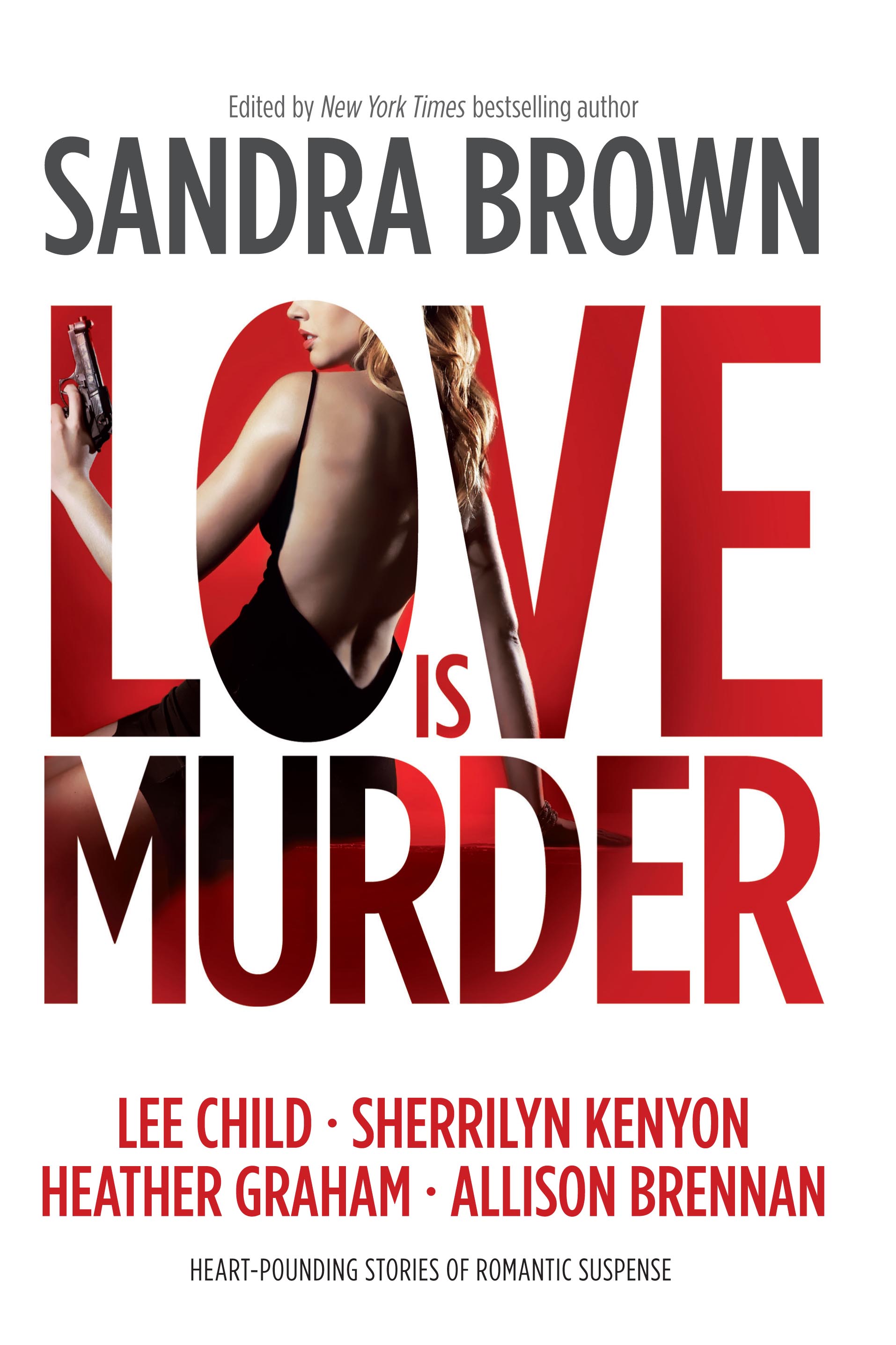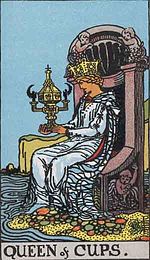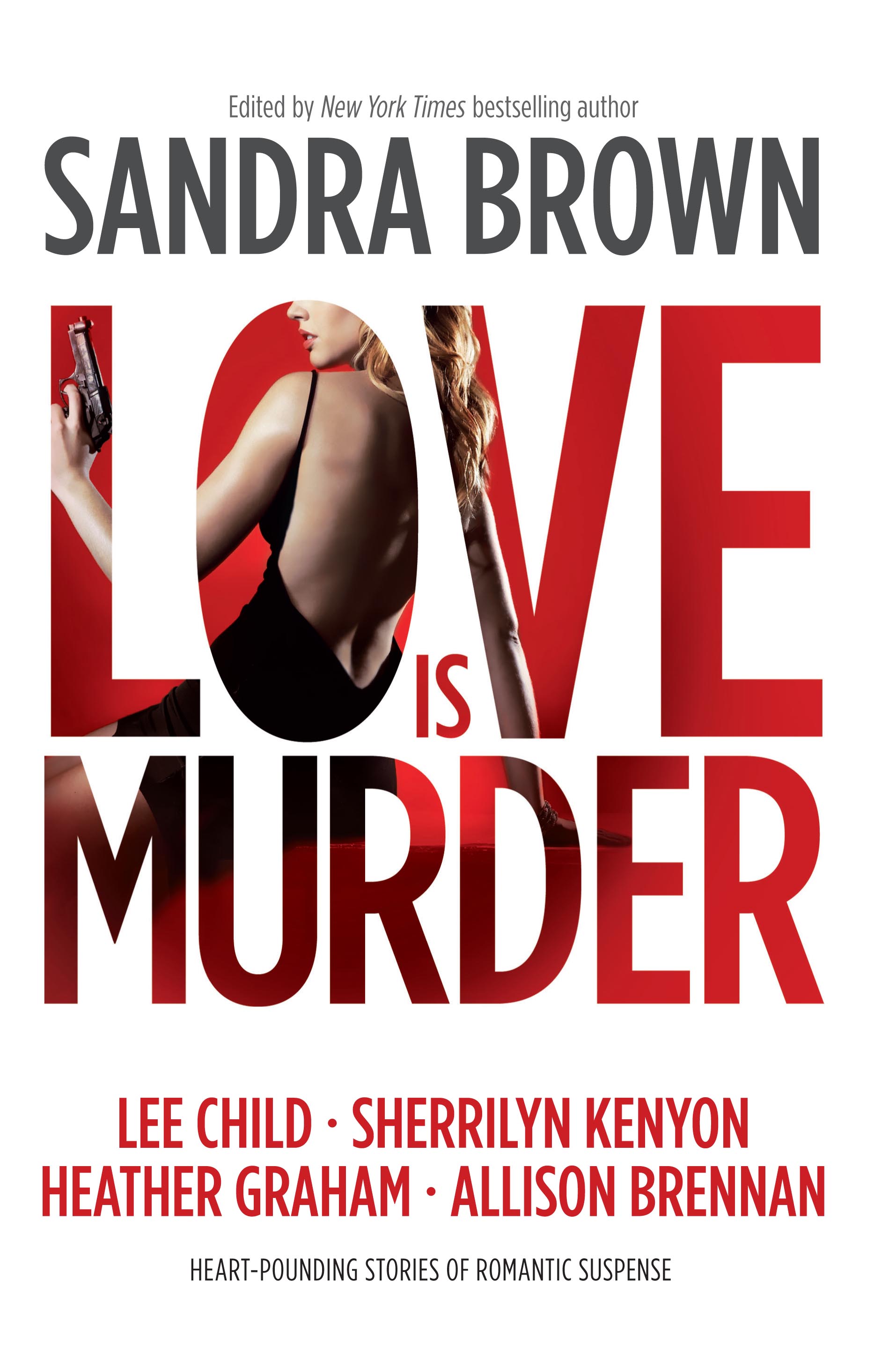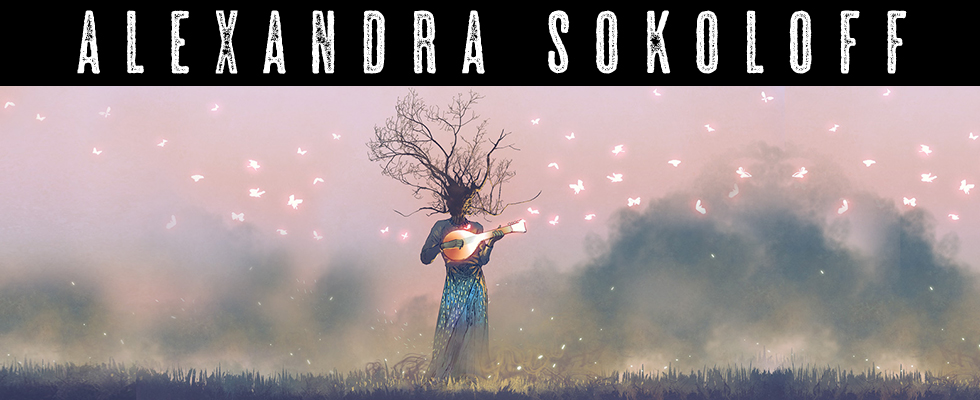The International Thriller Writers' romantic suspense anthology Thriller 3: Love is Murder is out in paperback this week.
Edited by Sandra Brown and Allison Brennan, featuring stories by Lee Child, Heather Graham, Sherrilyn Kenyon, and a whole lot of other great authors. And me.
As you can see from that lineup, it’s going to be a bit more heavy on the suspense than on the romance!


Find an independent bookstore near you
I had no premise at all in mind when I was asked to do a story for Love is Murder. I said yes because - well, seriously! It's not like I could turn this opportunity down - with that lineup of writers, I was going to do whatever it took. But when I actually had to sit down and write something, I was in a very difficult place emotionally and I wasn’t feeling very romantic. Suspense I can do in my sleep, but love wasn’t the first thing on my mind. So I asked myself what would be a romantic escape, the kind of fantasy setting that I think really helps deliver the experience of romantic suspense? And the first thing that came to mind was my first trip to the Bahamas. We Left Coasters don’t generally do the Bahamas – we tend to go to the far closer paradise of Hawaii if we’re in the mood for an island, so the first time I was in those other islands it was truly an overwhelming experience.

I knew I could do the sensuality of that setting justice, and then I decided not to fight the emotional place that I was in, but rather use the experience of heartache and devastation as a jumping off point for the story. And once I’d put a wounded character into that lush setting, everything started coming alive – it’s just the magic of the process. I also took a huge hit of inspiration from the image of the Tarot Queen of Cups – that card was a touchstone for the main character, the Macguffin, and the whole story.
I layered water imagery and the theme of Atlantis and precious objects and art throughout, to make a kind of dreamlike modern fairy tale (which I won't talk too much about because it's too easy to give away a short.).
People often ask me to blog about how to write a short story. I find the question difficult because I very rarely write short stories. For me it’s every bit as hard to come up with a great idea for a short story as it is for a novel, so my feeling has always been: why not push through and MAKE it a novel (or script) which will serve as an income stream instead of just a fun advertisement for your books that ARE income-producing?
That may sound pretty crassly commercial, but writers have to be practical if we want to eat.
(And I don't think that it's a coincidence that the art of the short was at its zenith back when short story authors were paid an actual living wage for their efforts. An older author friend told me what she was paid for a short story in the 60's and OH MY GOD. Seriously.)
But maybe I’m just a long-form writer by nature. I wrote my first short story, The Edge of Seventeen, only because I was asked to contribute to an anthology I thought was a really cool idea – stories about marginalized superheroes (people of color, women), and I thought I could probably manage a dark story about an alienated high-school girl who has to become a heroine in horrific circumstances. She’s dreaming about a terrible massacre at her school, and becomes convinced that she can stop the shooting with the help of a popular boy, her secret crush, who is having the same dream. I wrote it, loved it, and it went on to win a Thriller Award for Best Short Fiction. But I couldn’t stop thinking about the characters and the situations and it just kept nagging me that there was a lot more to it, and last year I finally just gave in to that pull and adapted the story as a VERY dark YA thriller, The Space Between.
I was right – there was a whole hell of a lot more to it, including quantum physics and parallel universes, and I’m actually now going to have to continue the whole thing as a trilogy.
And now that I’ve written my dreamlike Bahamian cat-and-mouse encounter In Atlantis for the Love is Murder anthology, I’m having the same thing happen – I can’t stop thinking about the characters and what happens for them next, and I know I’m going to end up expanding the story into a novel which may actually turn into a series.
So my very infrequent attempts at short stories seem to turn out to be springboards for future novels.
Yet even though I don’t have much experience writing them myself, I can look at stories analytically and come to conclusions that may be helpful (writers, you know my prescription for everything by now – MAKE A LIST of ten of your favorites and see what the storytellers are doing and how they do it.)
I don’t read many short stories these days but I grew up compulsively reading Alfred Hitchcock Presents anthologies, and actively sought out stories by my favorite authors: Shirley Jackson, Daphne Du Maurier, Ray Bradbury, Poe of course, and Stephen King.
The ones that spring to mind instantly are the horrific "They Bite", by none other than Anthony Boucher, for whom the unpronounceable Bouchercon is named;"The Yellow Wallpaper" - even more horrific in a feminist kind of way, by Charlotte Perkins Gilmore; "The Lottery" by Shirley Jackson, to which The Hunger Games owes, well, just about everything. "The Birds" and any number of shorts by Daphne DuMaurier, she is just electrifying. Just about everything in Ray Bradbury's The Martian Chronicles. And Stephen King's "The Mist", really more of a short novel, but we've already established that I like long. In fact, every single one of my list (except, I think, The Lottery) are shorts that have been adapted into full-length movies, so it's pretty clear what my taste is.
I've noticed that ones that I love not only have enough going on to make a whole full length novel - they also have that great high concept premise, which usually includes a huge twist. I really think that the essence of a short story is the twist, and once you have that, you can set up the story with a basic three-act structure: You have someone who wants something very badly (The Act I setup) who is having trouble getting it (The Act II complications) and eventually DOESN’T get what they think and say want, but they get what they really need instead. (Which creates the Act III twist.)
Because of the restriction of length, often all a short story really does is take a premise and set it up (Set Up is generally just Act I of a novel or film) and pretty much cuts directly to the chase: the final battle and TWIST. The Edge of Seventeen was basically that set up and then the twist. As a matter of fact, when I actually sat down to write the first draft of the novel, I found I used most of the story almost directly as written as the first act!
So with a short story, you have a beginning and an end, but not much of the vast middle section that comprises a full-length novel or film.
I think that's why shorts are so seductive (and arguably good practice) to more beginning writers. It's pretty easy to write a first act. It's the middle that's hard. (I may just have gotten myself in a world of trouble, we'll see!)
I did structure In Atlantis in three acts (I'd actually say that ALL stories are three acts, that's what makes them stories), but I'm very aware that the first two acts of the short would be no more than a first act in a full length novel, and that the third act of the short would still be the third act of a novel - with many more twists and action, of course.
But I'm perfectly aware that I may just be looking at the structure of a short that way because it allows me to fit the longer-form ideas that I have into the format of a short.
Another thing I think a short has to deliver - every bit as much as a full-length novel does - is the genre EXPERIENCE (or maybe you've noticed I'm just a little obsessed with this aspect of writing, these days).
So do you read a lot of shorts? Do you write them? How do you write them? Is my "Act I set up, then cut to the Act III chase" resonating with you (as a reader OR a writer) or do you find yourself doing something completely different?
- Alex

Find an independent bookstore near you



















No comments:
Post a Comment